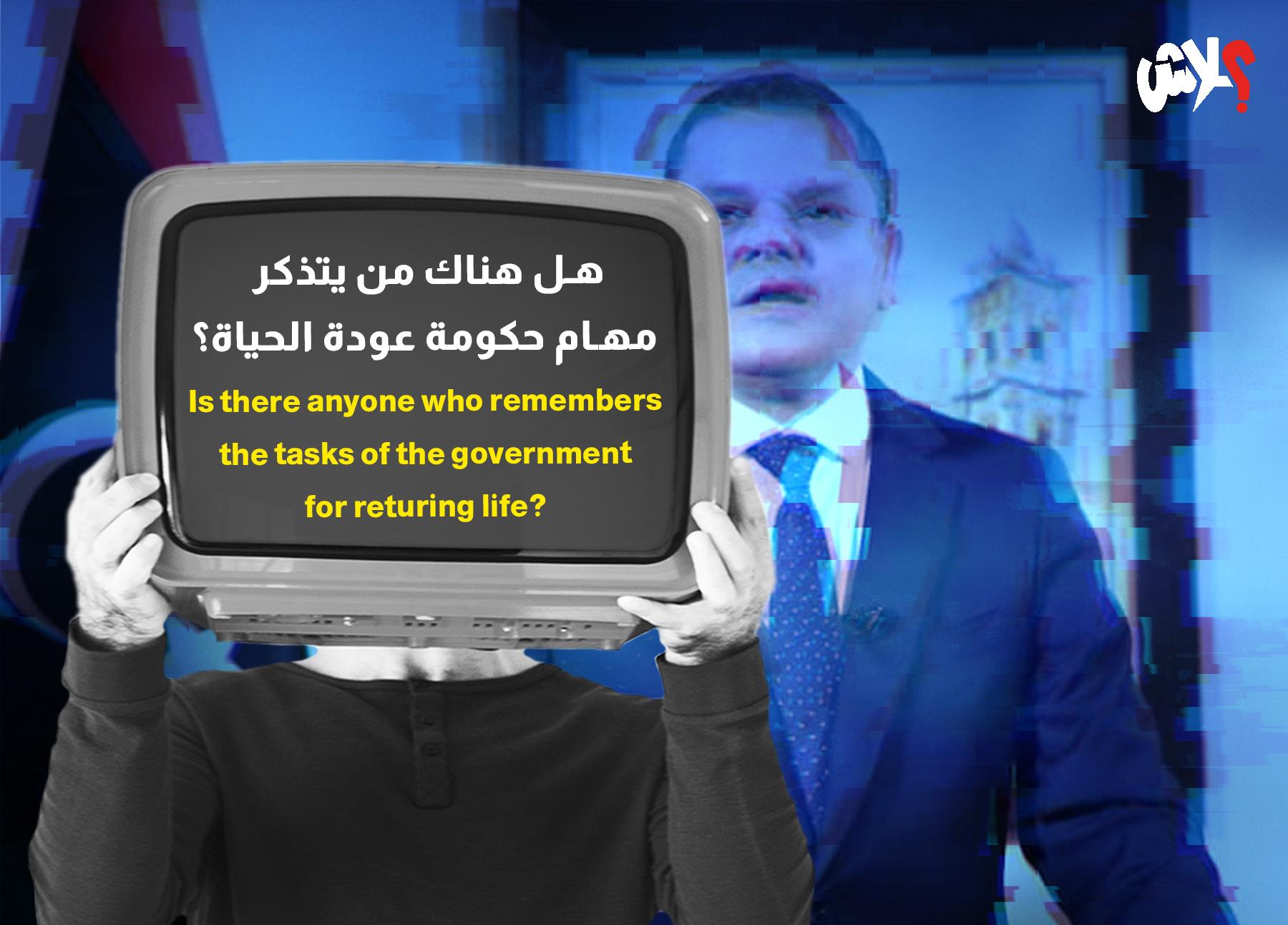Does Anyone Remember the Tasks of the “Return of Life” Government?
Abu Muslim al-Khurasani, the servant of the Abbasids and one of their powerful advocates in Persia, did not know that he would end up being killed by those he helped establish their state. He believed at some point that he had become a partner in building the Abbasid state, gaining a distinguished status among the rest of the Mawali. This illusion made him speak with Abu Ja'far al-Mansur, when he assumed the caliphate, with a certain level of parity. This parity brought him down from a powerful statesman to a mere saddle maker. It was this illusion that killed Abu Muslim, and history tells us it will kill many others after him.
For a year, we have witnessed a battle of figures among the ruling power in Libya, with massive financial figures that have become normal to Libyans. The term “billion” has lost its awe, let alone a few million, as each side tries to throw the fireball that ignited in Libyans' savings due to immense and unjustified spending over the past years to burn the other side instead of burning them all.
Amidst all this, a question, which we believe is important, has arisen.
What are the tasks of the “Return of Life” government originally, who allocated all these funds to it, and were these funds aligned with its tasks?
The “Return of Life” government was established based on a political agreement, like most of the governments that ruled Libya in the past decade. This time, however, its tasks were defined more precisely: the first task was to reunify the executive authority in Libya following the division that occurred under the Sarraj government, and the second was to prepare for the presidential and legislative elections on an agreed date.
Since you know what happened, we will not elaborate much. Just one year after the “Return of Life” government took office, political division returned to the executive authority, and this government failed to conduct the elections on time. Its (spontaneous) prime minister violated the pledge he signed upon assuming office not to run for the elections that his government would oversee, yet he presented himself as a candidate!
After this failure, it would have been logical for this government to hand over its duties, given that it failed in its primary tasks. However, it continued, and the Central Bank of Libya's coffers were opened for it to spend as it wished, and this government spared no one. Everyone got their share, and the people were appeased with salary increases, only to later realize that what was taken from them with the left hand was also taken back with the left hand.
This situation created a budget deficit, a clear erosion of cash reserves, and public debt, not to mention the parallel government that spent its share from the remains of this truly dead nation pretending to be alive. In the end, the Central Bank governor could not cover all this except by resorting to taking more from the remaining Libyan funds again. But they told the people this time, “We will only impose a tax on the exchange rate and deduct 27% from your savings (if you have any), your salary, and every penny you own or will own in the future.” This is because the prime minister has spent all the money we had and crossed all red lines in spending, and we were unaware of this because we were sipping tea in the City of Fog.
We believe that memory is a fortress; therefore, we must remind ourselves, others, and those who will come of what happened. Nothing will change this reality, not out of despair but awareness of ourselves. It wasn’t the first time, and it won’t be the last.
This tax will pass peacefully, and Libyans will crowd in front of banks to exchange their money for hard currency. Dbeibeh will remain in his place, satisfaction will fill the corners of the high-walled headquarters, and the people will cover the expenses of the entire ruling class in Libya from their children’s sustenance. Everyone who gets a chance to get close to this authority will chant, “Teach us, O Leader, how to achieve our future.” The men in black suits will run through the alleys of the grieving Libya, looking for anyone who just asks a question.
Does anyone remember what the tasks of the “Return of Life” government are?
And does anyone know who the Libyan Abu Muslim al-Khurasani is?

